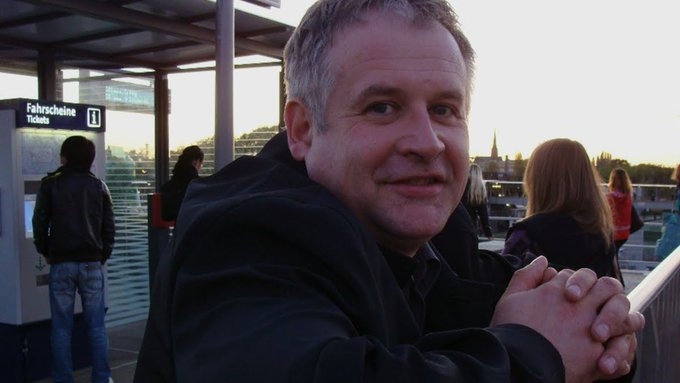Dmitry Kolker, 54, had been suffering from terminal, stage IV pancreatic cancer when FSB officials dragged him from his hospital bed and flew him to Moscow’s notorious Lefortovo prison, where he later died.
Kolker’s treason charges came shortly after his refusal to testify against two scientist colleagues at the Institute of Laser Physics (the Siberian branch of the Russian Academy of Sciences), his son Maksim Kolker said.
“They called him in for questioning, they wanted him to testify against chief researcher Bagaev and the director of the Institute of Laser Physics. He said he would not tell untruths and things he didn’t know about. Some sort of coercion was going on,” Kolker told Latvia-based outlet The Insider.
In the article published prior to his death on July 1, Kolker’s son said regime investigators had not told him whether his father was still alive. All he knew was that the scientist was in a cell with a refrigerator. “The man can’t eat, he is fed intravenously. He is constantly vomiting,” Kolker said.
“Stage IV pancreatic cancer is a death sentence,” his daughter Alina Mironova wrote on social media. “But to treat this within the walls of a pre-trial detention center without proper medical care, as opposed to at home, is the worst thing that can happen to a person.” Her VKontake page indicates that her father was also a talented organist.
The exact nature of the alleged treason Kolker is alleged to have committed remains unclear. His primary specialization was in physical electronics – nonlinear optics, spectroscopy, and laser metrology – and he had authored and co-authored more than 100 scientific papers.
When or how his alleged betrayal was carried out was also unclear. During his trips to China “there was an FSB employee next to him the whole time,” his son wrote. “Speeches and conversations in English were forbidden.”
The arrest of such a senior scientist has caused speculation that Vladimir Putin’s security services have launched a campaign to hunt down anti-regime elements in sensitive positions. Some also noted the recent arrest of Vladimir Mau, head of the Russian Presidential Academy of National Economy and Public Administration (RANEPA) and a Gazprom board member regarded as a political liberal, and the demotion of Metropolitan Hilarion, the effective deputy head of the Orthodox church.
On July 3, mourners in Novosibirsk constructed a makeshift memorial, leaving flowers and a poster with photographs of Kolker and another scientist currently in detention, Anatoly Maslov, at a monument to Soviet scientist, Valentin Koptyug. The anonymous creators quoted Kolker’s son.
“The FSB killed my father,” the statement read in capital letters. “Knowing what condition he was in, they removed him from the hospital. Thank you, our country . . . you didn’t even allow our family to bid farewell.”
“Investigator Morozov, Novosibirsk judges, and the entire state machine — I hope you will answer for your actions.”
The creators of the memorial demanded a halt to arbitrary detentions and attempted to raise money to pay for Kolker’s funeral and family lawyers. “If you were waiting for the time when you can do the right thing, it has come,” the authors wrote.
On July 4, Russian police in Novosibirsk destroyed the memorial. The 75-year-old Maslov, a chief researcher at an institute of theoretical and applied mechanics, remains in detention in Lefortovo.
Aliide Naylor is the author of ‘The Shadow in the East’ (Bloomsbury, 2020). She lived in Russia for several years and is now based between London and the Baltic states, working as a journalist, editor and translator.




